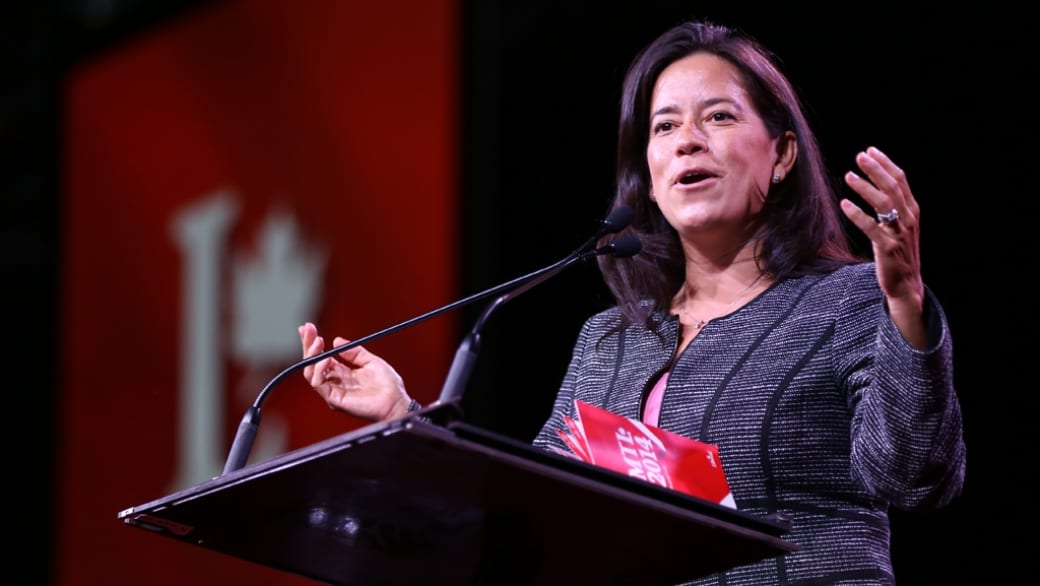After winning the new riding of Vancouver-Granville for the federal Liberals in the October 2015 election, Jody Wilson-Raybould was appointed minister of justice and attorney general in the Trudeau cabinet. A former lawyer and regional chief of the Assembly of BC First Nations, Wilson-Raybould comes to the role with a long record in public service.
Just two months in, and tasked with carrying out some of the new government’s marquee campaign promises — much of which entails undoing the legacy of the Harper decade — Wilson-Raybould has a big job ahead of her.
In this condensed and edited interview, Wilson-Raybould tells Daily Xtra by phone about the government’s promises to the LGBT community, sex workers’ rights, HIV justice and upholding the Charter of Rights and Freedoms.
Daily Xtra: Your mandate letter from the prime minister restates the government’s commitment to bringing in a trans-rights bill. Will this be the same as the bill that Parliament passed earlier this year but was blocked in the Senate? If so, how do you plan to get it through the Senate this time?
Wilson-Raybould: I’ve had the opportunity to speak with the MP from Esquimalt, Randall Garrison [who introduced the bill in the last Parliament], about this. Our government is committed to protecting transgender persons from discrimination and we will introduce amendments to the Canada Human Rights Act and the Criminal Code. We’ll work with members of Parliament on this and ensure that the amendments that are introduced are provided with opportunity to study, and we will commit to having open conversations as the bill proceeds through parliament.
The Conservatives still have a majority in the Senate. How do you see it passing this time?
In all of the commitments that our government has made, we are going to make sure that we carry through in an open and transparent way, so that there is substantive dialogue and discussion between and among all members of Parliament, and we’ll ensure that all voices of Canadians are heard. I look forward to having this discussion with my colleagues from all corners of the House and presenting a thoughtful piece of legislation on this issue.
A long-standing grievance among LGBT activists is the differential and discriminatory ages of consent for anal and vaginal sex. Does your government have any plan to address this?
As you saw in my mandate letter, we’re committed to doing an overarching review of the criminal justice system that includes provisions looking comprehensively at the Criminal Code. I understand that there are differential ages of consent for various reasons articulated in the Code, but I also am aware that there’s a number of appellate courts that have spoken to Section 159 and rendered it unconstitutional. We’re committed to ensuring that we uphold the Charter of Rights and Freedoms and that values of equality are respected. So it will be included in our overarching review of the Criminal Code.
Since being elected, you’ve spoken out about your desire to reopen the Conservatives’ Protection of Communities and Exploited Persons Act, which re-criminalized aspects of sex work. Is there actually support in the government for addressing this? It didn’t come up during the election.
I have committed to reviewing the prostitution laws and making sure that we’ve adequately addressed the concerns expressed by the Supreme Court. I have been and will continue to sit down with my officials to consider the best approach and options, and also commit to sitting down with those directly impacted, sex workers. I’ve had discussions broadly out of my department with respect to our government and this is something that we’re going to follow through with.
When can we expect your government to move on these issues?
We’re in the stage that there are many issues in my mandate letter, some that have a substantive, imminent timeframe around them, like the physician-assisted dying response. We’ve advanced the inquiry on missing and murdered indigenous women and girls, and there’s a substantive amount of work we’re committed to doing. At this point, we’re looking at how we can proceed to ensure that we meet those commitments over the course of our mandate, and when we do make decisions about timelines on the issues we’ve talked about, we will ensure that we make those public.
What’s your government’s stance on the ongoing prosecution of HIV-positive people who do not disclose their status before having sex with someone?
It’s been raised. I have not had substantive discussions on it. I will say that this is an issue, and how police address this issue is something that certainly is best addressed by provincial governments, who have the primary responsibility for administration of justice. But having said that, I am going to speak to my officials about this, and they are in communication with their counterparts in the provinces. I’ll ensure that on this issue and others that we work collaboratively with our provincial and territorial counterparts.
What else can you tell our readers about your priorities for our community?
The approach that our government is taking is to ensure that we follow through with our commitments that we’ve made. My role as the minister of justice and attorney general is to ensure that in all of the decisions that we make that we uphold the Charter of Rights and Freedoms and our values of equality and inclusiveness. I’m very much looking forward to ensuring that we have open and transparent government and that the voices of all Canadians are heard. That’s my commitment.


 Why you can trust Xtra
Why you can trust Xtra


